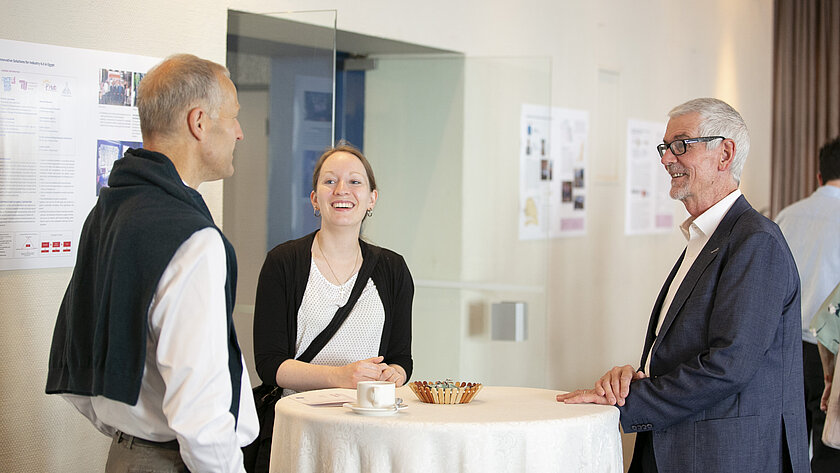The conference was part of the DAAD-funded project "Advancing sustainable economic development in Rwanda through circular agro-economy" (Rwanda-CAE) and was organized in conjunction with the DAAD conference "Improving graduate employability through capacity building partnerships", which was attended by members of DAAD-funded projects of the funding line "Practice Partnerships". The event offered all participants the opportunity not only to learn new things about the circular economy in Rwanda, but also to exchange ideas among themselves.
The agenda included presentations and discussions on the impact of the circular economy on the labor market and improving the employability of university graduates through collaborations between the education sector and the business community. Patrick Karera, Permanent Secretary of Rwanda's Ministry of Environment, explained why Rwanda is striving to transform its economy to a circular model and what actions are being taken to support the transition. Wekesa Zablon Wanyama, a circular economy expert and advisor to the Circular Design Nairobi network, highlighted the types of jobs created in a circular economy and the skills needed to succeed in those jobs.
Rwanda-CAE project: sustainable promotion of economic development in Rwanda
In addition, the Rwanda-CAE project, jointly implemented by HNU and UR, was presented to advance sustainable economic development in Rwanda through the introduction of a new master's degree program and certificate courses in circular economy. The new course is designed to provide practical skills and is supported by three industry partners, Sina Gerard/Enterprise Urwibutso from Rwanda and En-Crops GmbH and SharkBite GmbH from Germany.
Founder Sina Gerard with his managing director Alexis Nkundayezu and the managing director of En-Crops, Hermann Kaufmann, gave insights into their business models and explained why they decided to partner with the two universities in this project.
Sina Gerard processes agricultural products and supports more than 5,000 local farmers in growing crops and fruit. In doing so, the company is pursuing its vision of offering excellent products "Made in Rwanda" and promoting social and economic development in rural areas.
Using extrusion technology, En-Crops transforms leftover biomass into pure organic soil amendments that sustainably improve soil health. En-Crops works with franchisees worldwide who are interested in producing their products locally. Hermann Kaufmann used the conference to learn more about the agricultural structure in Rwanda.
Industry partner SharkBite was unable to send a representative to Kigali. Their contribution to the project was presented by moderator and project leader Prof. Dr. Thomas Bayer from HNU. SharkBite is a sustainability-focused consultancy that guides organizations in their transformation to work in line with the Sustainable Development Goals (SDGs), respect planetary boundaries and benefit society.
Insects as waste recyclers: exhibition of Rwandan success stories
The theoretical input was rounded off by a mini-exhibition of Rwandan success stories of the circular economy: start-ups and companies that are already putting the idea of the circular economy into practice. Golden Insect, for example, uses insects to turn organic waste into valuable fertilizer and animal feed. Founder Dominique Xavio Imbabazi is a UR graduate and pioneer in the field of insect farming in Rwanda. Sina Gerard presented their food products, Greencare Rwanda Ltd and the Company for Protection of Environment and Development (COPED) represented the waste management sector, and Wastezon presented their solutions for C2C and B2B connections to reduce hazardous e-waste. Gorilla Cooking Stove is a young startup company supported by UR's Grid Innovation and Incubation Hub. They showcased their fuel-efficient stove that runs on pellets instead of charcoal or firewood. In addition, four traditional herbalists from the Agarwanda Association demonstrated the importance of biodiversity for health. The range of innovative young companies showed how a new way of thinking can lead to solutions that benefit both the planet and society.
Closing panel discussion: looking ahead to the future of the circular economy
The conference concluded with a panel discussion in which practitioners discussed with academics and policymakers how the circular economy will impact employment and what skills are needed. Paulin Buregeya of COPED used a practical example from recycling and waste management to calculate how the circular economy will create more jobs than a linear waste management system - processing waste requires more work than landfilling it. The education sector must ensure that graduates are equipped with the right skills to meet the challenges of the future.







